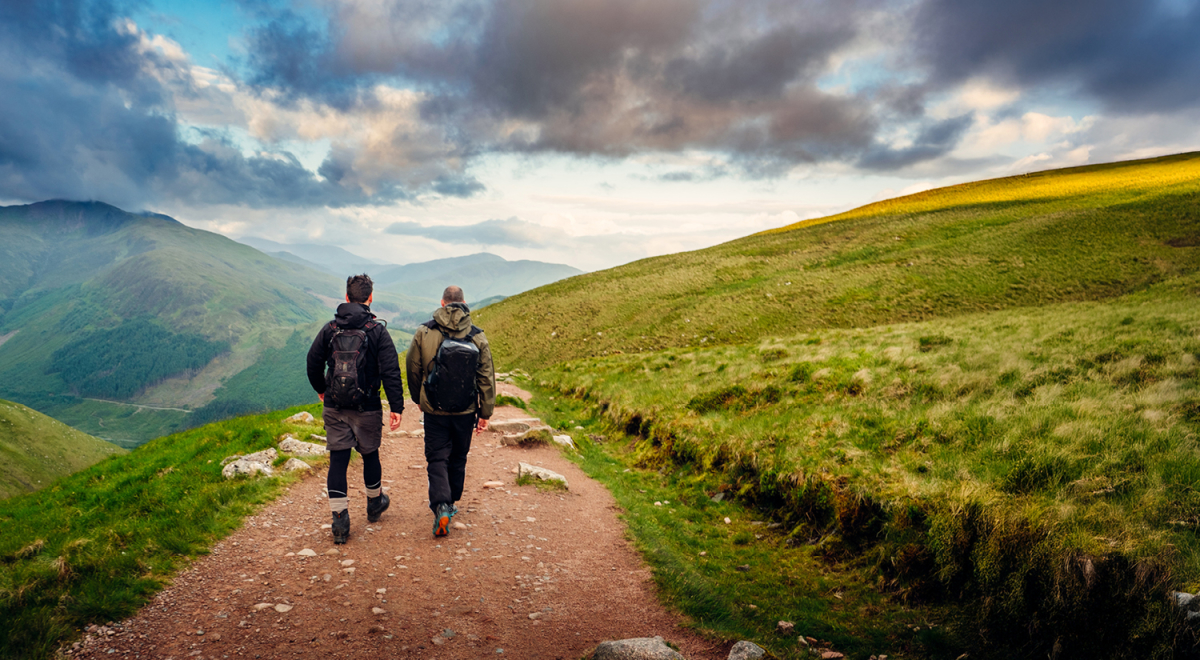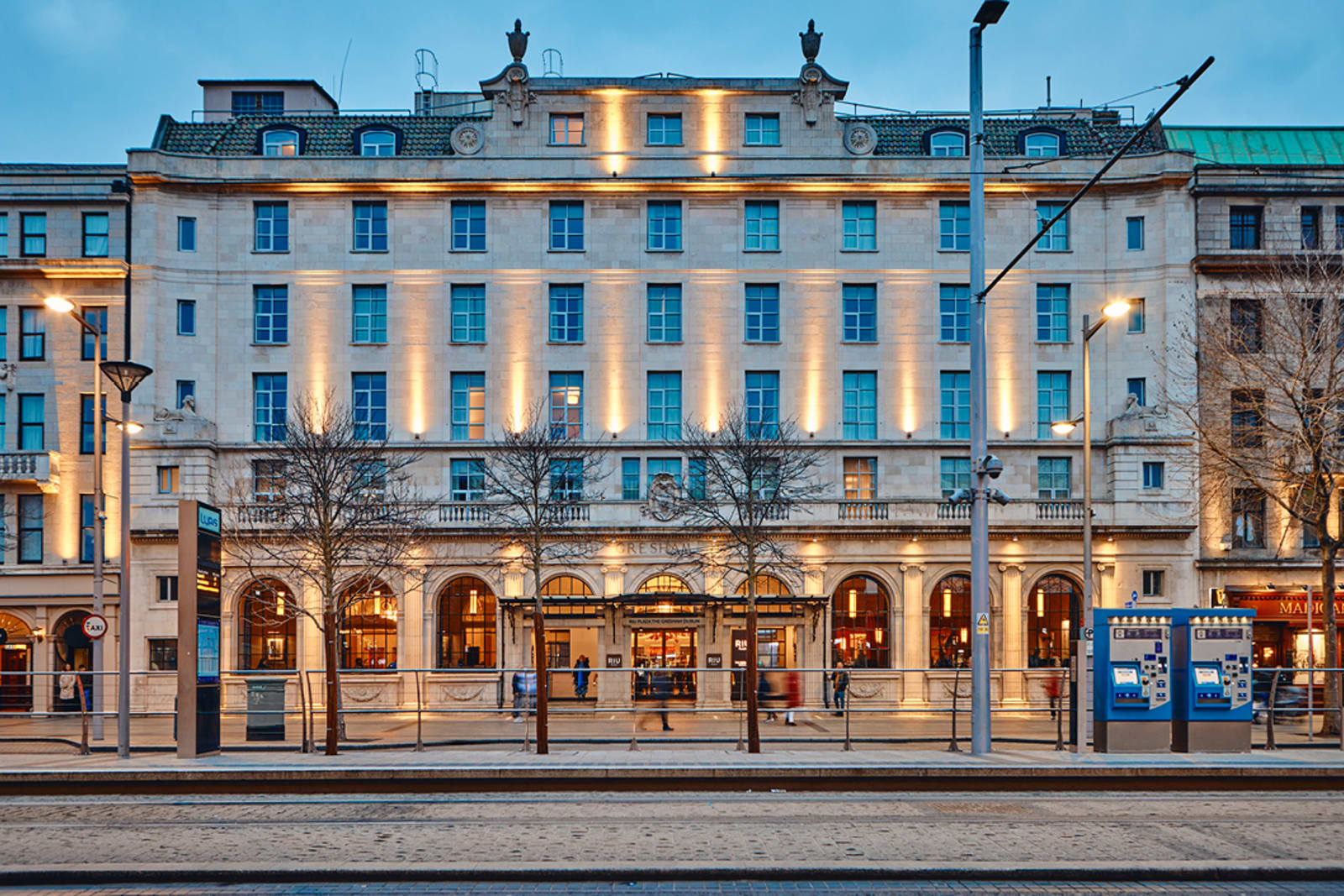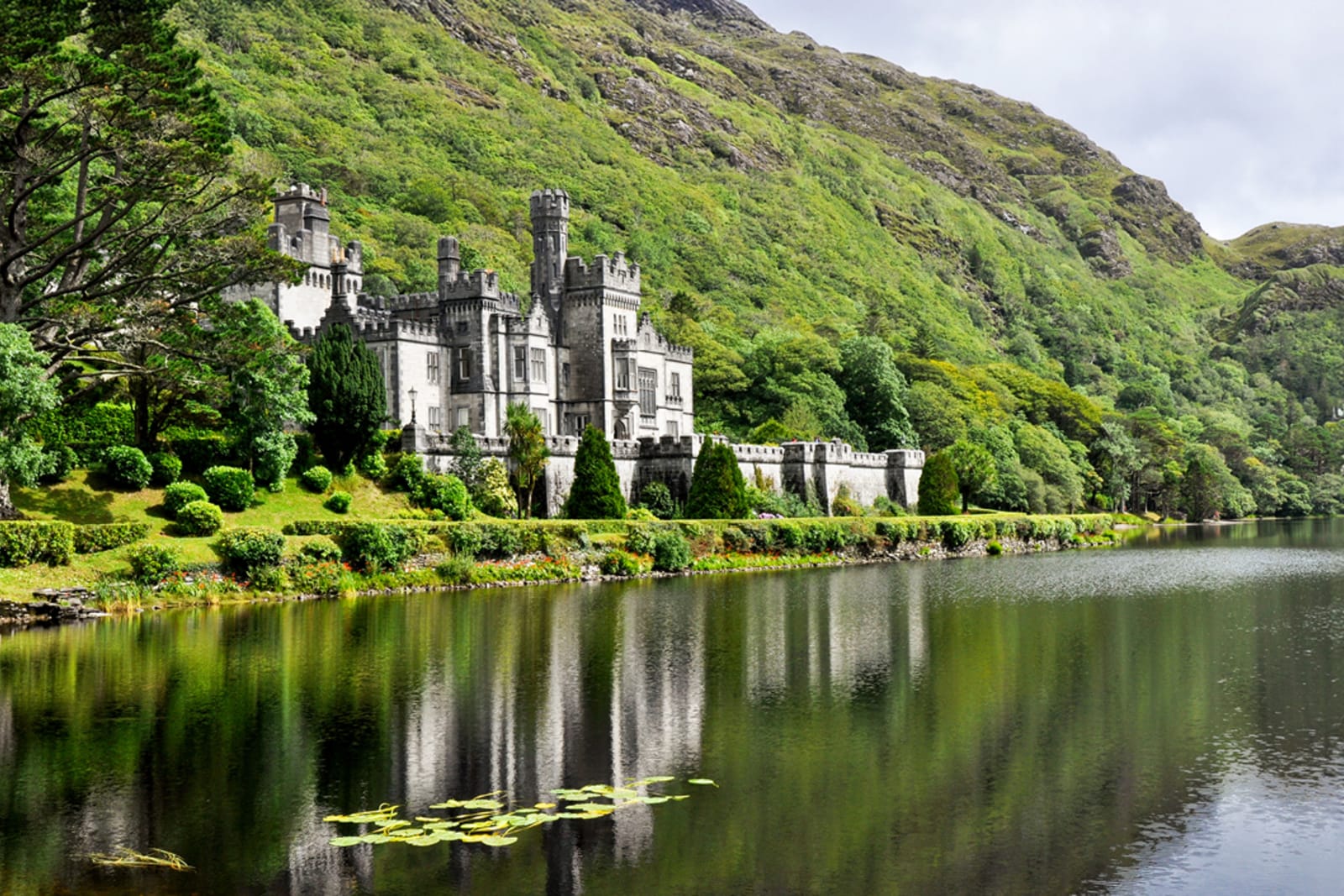Scotland or Ireland: Which Destination Is Right for You?
Which country has the most castles? What destination is more affordable to visit? We answer these questions and more.

6min read
Published 13 December 2024

Senior Content Writer
Which country has the most castles? What destination is more affordable to visit? We answer these questions and more.
There’s a reason the Harry Potter movies have been filmed in both Ireland and Scotland. Rugged mountains, rolling hills and charming villages give the two countries a truly magical quality.
So, should you choose to visit Scotland or visit Ireland? Is one of them more enchanting than the other? Keep on reading to discover what these two destinations have to offer — and how they compare and contrast!
Contents



Geography and climate
In terms of geography and climate, Scotland and Ireland are basically identical. Both are located on the westernmost edge of Europe where the Atlantic Ocean creates a temperate maritime climate. In other words, no matter which time of year you visit these two countries, you’ll likely have to deal with moody grey skies, rain and wind.
But don’t let that deter you! The unpredictable weather is part of the vibe (and gives you a pretty good excuse to hide inside a cozy pub for a couple of hours). Besides, the amount of rain will vary depending on where exactly you travel. Areas on the west coast of Scotland and Ireland tend to be a bit wetter than those on the east coast — but not always, so make sure to pack a jacket!
Really, the biggest difference between Scotland and Ireland is their size and makeup. The whole island of Ireland is comprised of two separate nations (the Republic of Ireland and Northern Ireland) and measures 84,421km2. This just trumps Scotland’s 77,933 km2, which includes almost 800 islands (94 of which are inhabited).
As a result, Ireland’s cities are more densely populated. That said, like the weather, this can vary based on where you’re travelling.
Language
Language doesn’t need to be factored into your decision to travel to Ireland or Scotland. Since English is spoken in each country, there’s no pressure to learn new words, terms or phrases.
That said, you might hear Irish people in Dublin saying “dia duit” (“hello”) or spot a sign in the Scottish Highlands directing you to Inbhir Nis (Inverness). Traditional Irish Gaelic and Scottish Gaelic are still used in their respective countries, and you could come across them while navigating the roads or reading a menu in a restaurant.



Transportation
Getting to Ireland and Scotland is easy. Each boasts international airports — including Dublin Airport, Edinburgh Airport and Glasgow Airport — that welcome airlines from more than 120 countries. Not only that, but direct flights are available from Toronto, Vancouver, Calgary, Montréal and Halifax.
Once you’ve arrived in your destination, getting around is also pretty simple: public transportation (including reliable buses and subway systems) and taxis are available in most major cities. Want more freedom and flexibility? Pick up a rental car so that you can explore on your own agenda — both Ireland and Scotland were made for day trips. Feel like making some new friends? There are plenty of Ireland tours and Scotland tours worth joining.



Accommodations
Both Scotland and Ireland have a variety of accommodations for travellers to choose from, including apartment rentals, castle hotels and 5-star resorts. Whether you’re planning a family vacation, a romantic getaway or a solo adventure, you’re sure to find a property that suits your travel style and budget.
Here are a few of our top picks:
Scotland
- ibis Styles Edinburgh St Andrew Square in Edinburgh: The city of Edinburgh may be steeped in history, but this hotel is modern. Plus, it’s located smack dab in the middle of the elegant New Town area just mere steps away from Edinburgh Castle.
- voco® Grand Central Glasgow in Glasgow: If you’re not bothered by crowds and thrive in the hustle and bustle, consider staying at this chic hotel. Attached to Grand Central Station, navigating Glasgow (as well as its surrounding cities) is easy from here.
- ibis Aberdeen Centre – Quayside in Aberdeen: For travellers who prefer to slow down on vacation, this is a great option. Check-out isn’t until 12pm, giving you plenty of time to explore — and indulge in the hotel’s daily breakfast buffet.
Ireland
- Hotel Riu Plaza The Gresham Dublin in Dublin: Do you have iconic sites like Temple Bar, Grafton Street and the Guiness Storehouse on your must-visit list? Each is less than 20 minutes from this 4-star hotel.
- The Address Cork in Cork: If you’re planning to road trip across Ireland, consider making The Address Cork your base for a few days. From here, you can easily drive to the Titanic Experience in Cobh, the Cliffs of Moher and the Ring of Kerry.
- The Fitzwilliam Hotel in Belfast: From its gorgeously appointed rooms and suites to its lively cocktail bar, every inch of this boutique hotel oozes charm.



Attractions and nightlife
When it comes to tourist sights, attractions, activities and experiences, Ireland and Scotland are actually pretty similar. Both countries have a lively atmosphere, historic city centres with cobblestone streets, and stunning natural landscapes. Each of these things does vary a little bit depending on which country you’re in though.
Let’s take a closer look at how:
Culture and history
Scottish history and Irish history are steeped in a shared Gaelic culture — something you’ll get to experience in each destination you visit, from the capital city of Edinburgh to the seaside destination of Galway and everywhere in between. It’s proudly shared in art, literature, architecture, historic landmarks and more.
Of course, this includes castles! And that’s where the two countries mainly differ. While Scotland is home to more than 2,000 castles and ruins, Ireland boasts approximately 30,000 (!!!). If getting up close and personal to as many of these amazing sites as possible is on your bucket list, you might just want to choose Ireland vs. Scotland.
Natural beauty
Both Scotland and Ireland have some truly fabulous scenery for you to take in. While Scotland is more rugged and mountainous, Ireland is more lush — it’s not called the “Emerald Isle” for nothing! But honestly, you’ll get to experience the full gamut of natural beauty (dramatic cliffs, windswept beaches, expansive valleys, etc.) in whichever country you decide to visit.
This is especially true if you decide to road trip! The North Coast 500, Wild Atlantic Way and Dingle Peninsula loop are among the most popular routes in Scotland and Ireland, but there are plenty more to choose from. Take our word for it, book a rental car and start planning your journey to Loch Ness, Giant’s Causeway and other can’t-miss pit stops.
Food and pub culture
Whether you travel to Ireland or Scotland, you’ll eat and drink well! Visit any traditional pub to listen to live music and indulge in hearty hand pies, loaded chowders and classic meat-and-potato dishes.
Whichever country you travel to, make sure to try its national dish: Irish stew (made with either lamb or beef) in Ireland or haggis (a savoury pudding made from sheep’s offal) in Scotland. And remember to wash it all down with a pint of beer, a glass of Irish whiskey or a dram of Scotch.



Currency and affordability
Despite having different official currencies*, Ireland and Scotland aren’t much different when it comes to affordability. You could travel to either with the exact same budget and not really feel that one is more or less expensive than the other.
Of course, it ultimately comes down to where you go and what you spend your money on. Activities, attractions and food in big cities and urban areas like Edinburgh will likely be pricier than they are in small villages like Killarney in County Kerry.
*Being a part of the European Union, Ireland uses the euro; meanwhile, Scotland uses the pound sterling as it’s part of the United Kingdom.
Scotland, Ireland…. Ireland, Scotland. It’s hard for us to say that the scale tips in either direction. Whether you choose to visit Scotland or pick Ireland, you’re guaranteed to experience cultures, cuisines and communities that are unlike anywhere else in the world. Need help making your decision? Check out our current deals or chat with one of our Travel Experts today.
